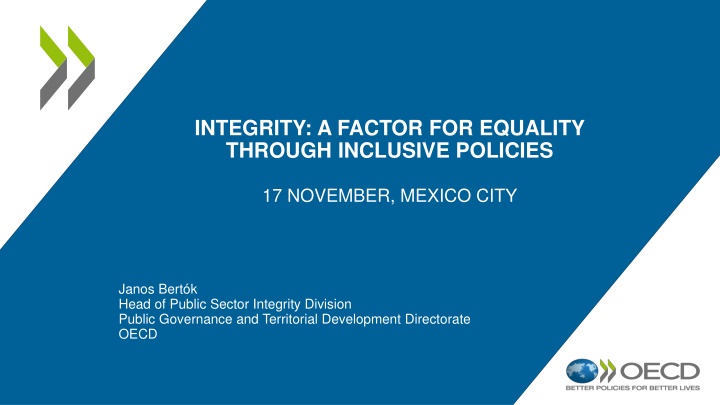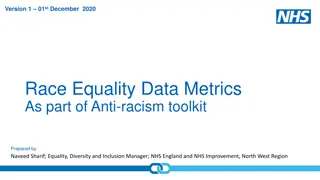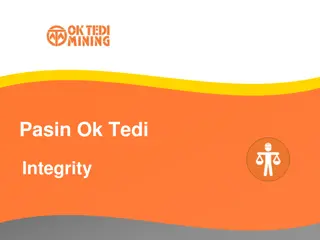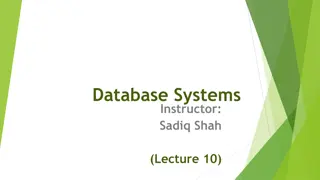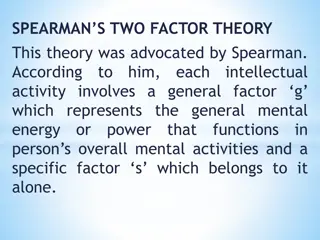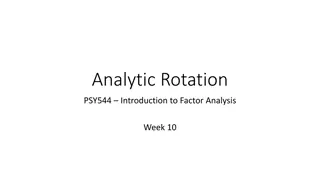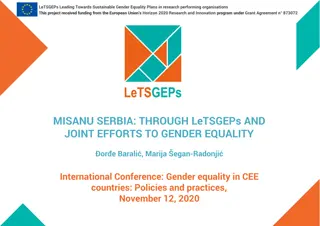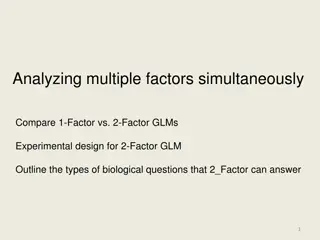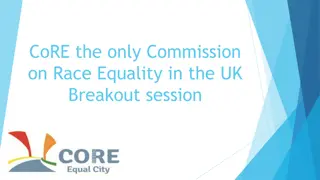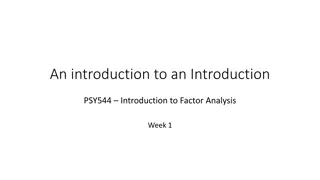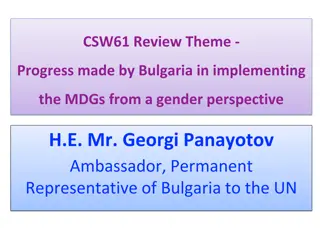INTEGRITY: A FACTOR FOR EQUALITY THROUGH INCLUSIVE POLICIES
In a global context of growing income inequality, the importance of integrity in fostering equality through inclusive policies is emphasized. The OECD works with Mexico to address issues of inequality, corruption, and declining trust in government, highlighting the need for integrity and competence to restore public confidence. By focusing on public integrity, transparency, and governance reviews, efforts are made to promote more inclusive growth and combat corruption for a fairer society.
Download Presentation

Please find below an Image/Link to download the presentation.
The content on the website is provided AS IS for your information and personal use only. It may not be sold, licensed, or shared on other websites without obtaining consent from the author.If you encounter any issues during the download, it is possible that the publisher has removed the file from their server.
You are allowed to download the files provided on this website for personal or commercial use, subject to the condition that they are used lawfully. All files are the property of their respective owners.
The content on the website is provided AS IS for your information and personal use only. It may not be sold, licensed, or shared on other websites without obtaining consent from the author.
E N D
Presentation Transcript
INTEGRITY: A FACTOR FOR EQUALITY THROUGH INCLUSIVE POLICIES 17 NOVEMBER, MEXICO CITY Janos Bert k Head of Public Sector Integrity Division Public Governance and Territorial Development Directorate OECD
Inequality is a global challenge The income gap is growing between the richest and poorest 10% across OECD countries Bottom 10% Median income Mean income Top 10% 1.60 1.50 1.40 1.30 1.20 1.10 1.00 1985 1990 1995 2000 2005 2010 Source: OECD Income Distribution Database (IDD), www.oecd.org/social/income- distribution-database.htm
Mexico is amongst the most unequal societies of the OECD Source: OECD, Society at a Glance 2016. (2014 data)
Capture & corruption associated with higher inequality 55 income share held by top 10% earners 50 45 40 35 30 25 20 -2 -1 0 1 2 3 corruption, average over 1996-2014 (higher figues = less corruption) 4
Corruption also harms productivity Innovation Index (WEF) Corruption affects productivity through its impact on innovation and diffusion of new technologies an enabling market environment resource allocation 7 R = 0.5823 6 CHE FIN SWE ISR JPN USA DEU NLD DNK LUX GBR NOR 5 AUT BEL FRA KOR IRL CAN AUS ISL NZL PRT EST 4 ITA SVNESP CZE MEX CHL HUN SVK TUR POL GRC 3 2 1 0 0 10 20 30 40 50 60 70 Corruption (inversed CPI Index)
Trust in national government is low & declining Integrity, competence are key drivers for restoring trust Confidence in national government in 2015 and its change since 2007 Source: Gallup World Pol
OECDs work with Mexico Governance Review of Mexico s National Auditing System Integrity Review (ongoing) Subnational Integrity Reviews (Coahuila, Mexico City, Nuevo Leon) Support to new Mexico City International Airport Procurement Reviews: IMSS, PEMEX, CFE) Study on federal Administrative Disciplinary Regime
Integrity for more inclusive growth: OECD Recommendation on Public Integrity
There is a vicious, reinforcing, cycle between inequality and policy capture (growing) unequal distribution of wealth and power Consequences Rents for capture group Lower trust in government and legitimacy of the system Political discontent Lower growth and worse wellbeing Incentives and opportunity (access) to influence policy decisions Capture (process) Use of legal and illegal means of undue influence Capture (result) Biased laws, regulations or policies
Integrity policies for inclusive growth: preliminary results from Mexico s Integrity Review 60+ concrete proposals, several central themes emerging: Strengthening institutional arrangements for coherence and co-operation Building a culture of integrity Strengthening the lines of defence against corruption Enforcing the integrity framework for deterrence and to restore trust in government
Strengthening institutional arrangements for coherence Strengthening the governance of the National Anti-corruption System Longer term for Presidency Transparent, comprehensive monitoring of States compliance Leveraging and investing in vertical co-ordination mechanisms Mainstreaming integrity across policy sectors and institutions Aligning Action Plan with other key national strategies Requiring anti-corruption plans of individual institutions Closer link between integrity and HRM policies
Building a culture of integrity A better balance between rules-based and values-based approach Ethics Committees should yield way to permanent Ethics Units (such as in PGR) and should not mix preventative and enforcement roles; Explicitly protecting whistle-blowers from reprisal Disclosure requirements to be followed up by validation and risk- based audits, or will not have a deterrent effect; Raising awareness on conflict of interest resolution policy (not the same as the disclosure policy!)
Asset disclosure Top decision makers Political Advisors / Appointees Senior Civil Servants Civil Servants 100 High level 90 80 70 60 50 40 30 20 level Low 10 0 Source: OECD Government at a Glance (2015).
Strengthening the lines of defence against corruption: risk management, controls and audit Convincing managers that a risk-based approach (i.e. risk mapping) and effective controls will benefit their organisations; Professionalising internal control staff to ensure independence; Piloting the establishment of independent Audit and Risk Boards/Committees in selected Line Ministries.
Enforcing integrity to restore trust in government Upholding public values through a strong disciplinary regime Stronger co-ordination between Attorney General s Office and SFP on serious administrative offences Ensuring investigative staff have access to the necessary information (tax, financial) and facilitating those channels Publishing performance data to ensure proper application of new classification system and to prevent undue influence over decisions Source: OECD 2014 Conflict of Interest Survey
Key OECD instruments for reference Recommendations & Principles Public Integrity (2017) Lobbying Public Procurement Toolkits and Frameworks MAPS Evaluation Framework Conflict of interest Toolkit
